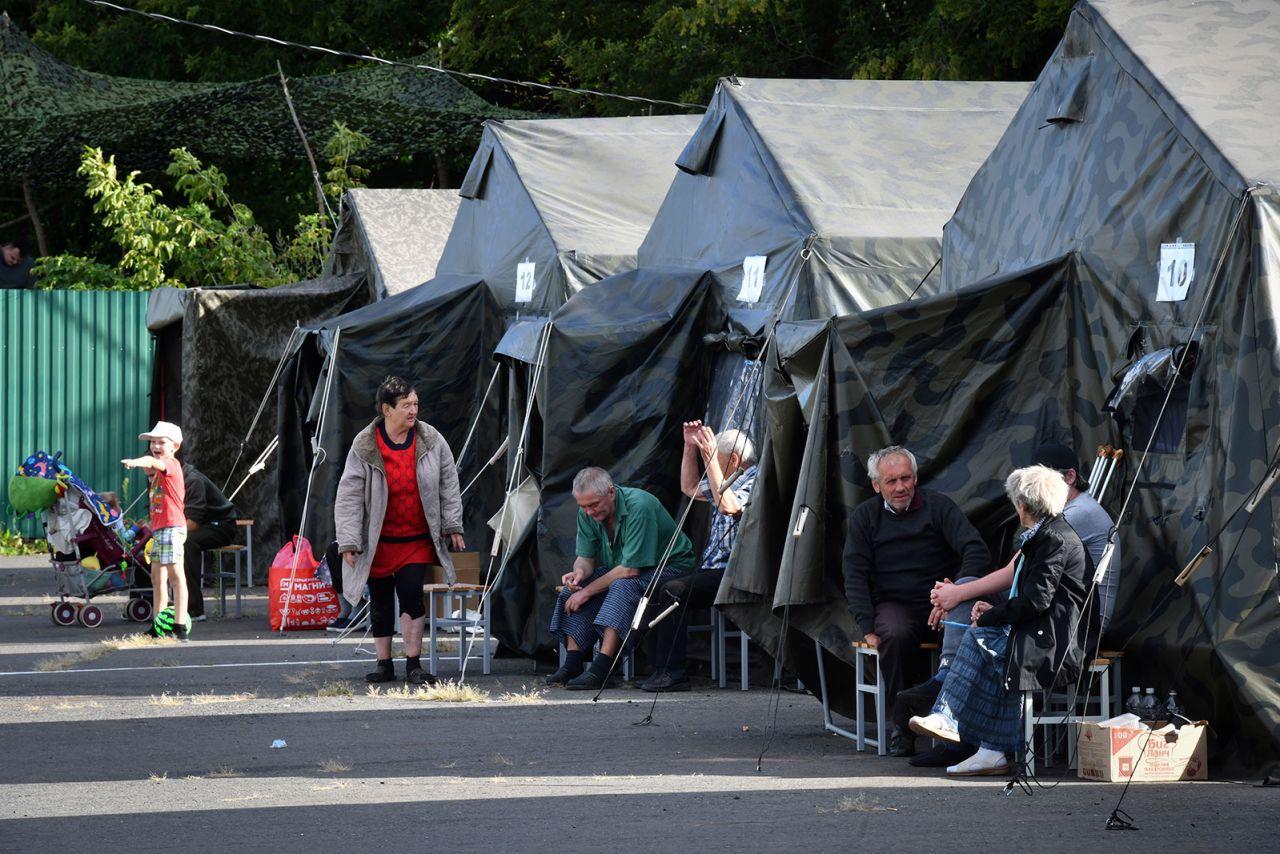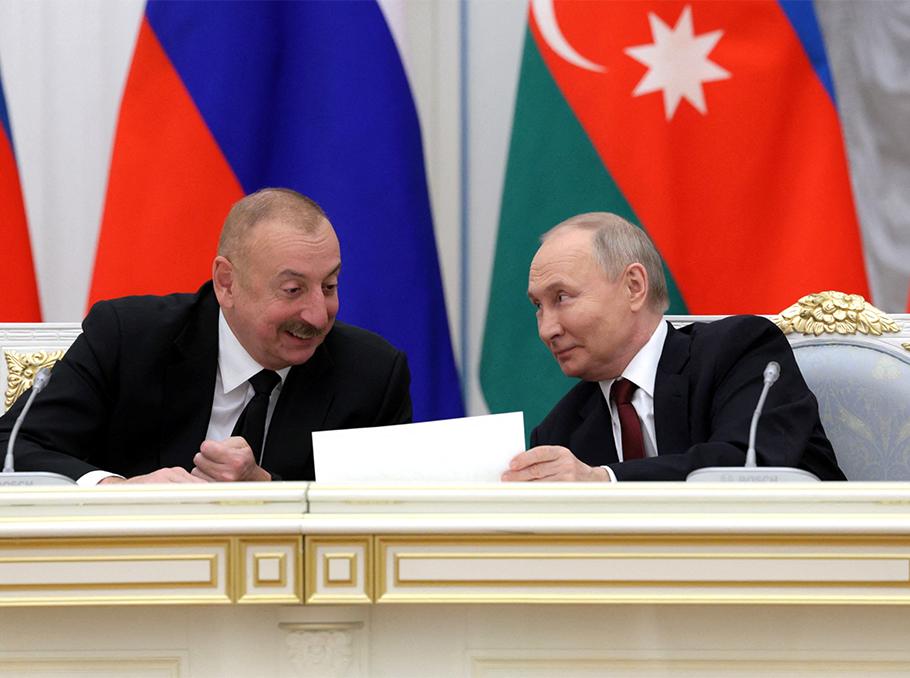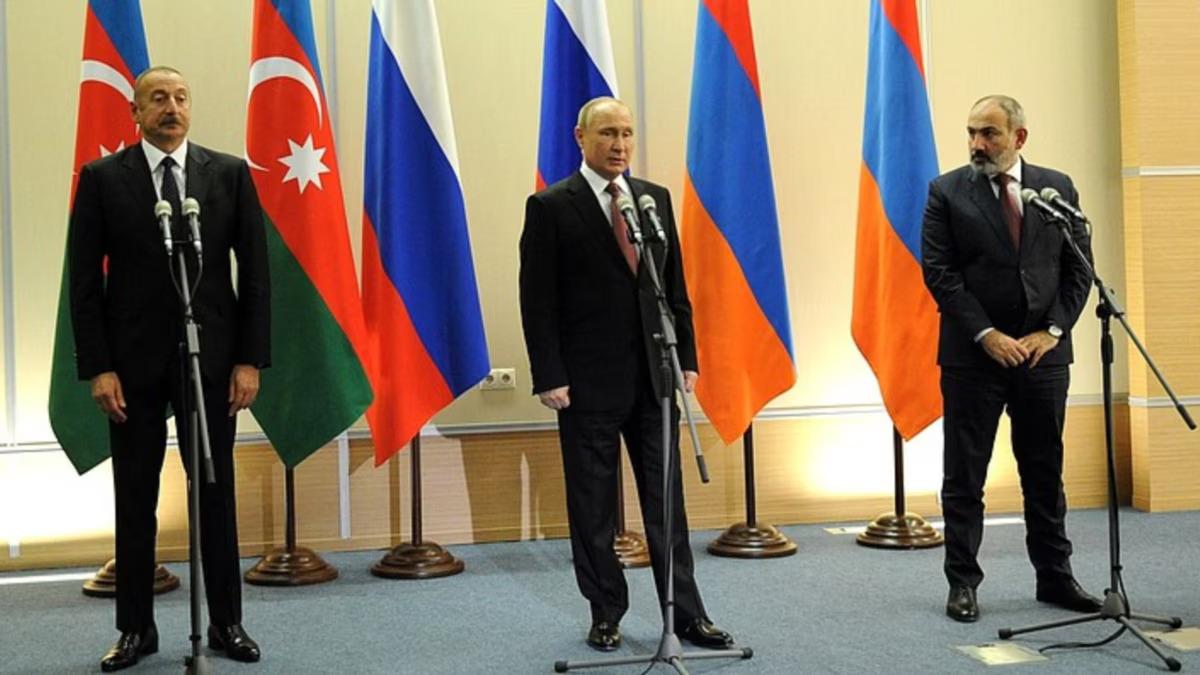Putin's state visit to Azerbaijan amid Russia’s territorial loss & tension with West Baku talks set to shape wider regional dynamics
The Kremlin’s confirmation of Russian President Vladimir Putin’s August 18-19 state visit to Azerbaijan has ignited significant speculation among experts and diplomats, particularly in states with vested interests in the region and the intricate dynamics between Baku and Moscow. The timing of this visit, amidst the Kremlin's mounting pressures and recent unexpected developments in Russia’s Kursk Region, has only heightened the intrigue surrounding the agenda and potential outcomes.
The importance of state visits
State visits differ from other diplomatic meetings in their ceremonial significance and the depth of discussions they encompass. They often involve the signing of major agreements, joint statements, and the reaffirmation of strategic alliances. Vladimir Putin’s decision to undertake this visit, even as Russia grapples with a costly war in Ukraine and crippling sanctions, underscores the critical nature of Russian-Azerbaijani ties. This visit, unlike a regular diplomatic trip, carries significant weight, signaling the importance Moscow places on its relationship with Baku.
State visits, distinct from other types of diplomatic engagements, are the pinnacle of international relations, symbolizing a commitment to deepening ties and addressing critical issues. They involve the highest level of ceremony and are usually reserved for nations with which there are significant strategic partnerships. The choice of a state visit rather than a working or official visit underscores the importance Russia places on its relationship with Azerbaijan, especially in the current global context.
Given Russia’s ongoing and costly war with Ukraine, accompanied by severe Western economic and political sanctions and the recent Ukrainian incursion into Russia’s Kursk Region, V. Putin’s decision to prioritize this foreign visit raises several questions. The timing is particularly intriguing: why is the Russian president not more visibly engaged in managing domestic challenges, such as the economy’s strain under sanctions, Ukraine’s incursion or the security threats near its borders?

One potential reason for this visit lies in the strategic importance of Azerbaijan in Russia’s broader geopolitical calculations. As Russia faces increasing isolation from the West, it is likely seeking to solidify and possibly expand its alliances with neighboring countries, particularly those that hold significant sway in key regions like the South Caucasus. Azerbaijan, with its rich energy resources and strategic location, is a crucial partner for Russia both economically and politically. Strengthening ties with Baku may also be part of a broader strategy to counterbalance Western influence in the region, as well as to secure alternative economic partnerships in the face of dwindling trade with Europe and the United States.
This visit may also be an effort by Putin to project strength and stability on the international stage, signaling that Russia still holds significant influence despite the challenges it faces. By engaging in high-profile diplomatic activities, Putin can divert attention from domestic issues and assert Russia’s role as a key player in global geopolitics.
Amid a challenging domestic and international landscape, Putin’s focus on foreign diplomacy raises questions. With ongoing military operations in Ukraine and a recent incursion into Russia’s Kursk region, one might expect the Russian leader to concentrate on internal matters. However, this visit suggests that Russia is keen to secure and strengthen its alliances, particularly with neighbors like Azerbaijan, who play a pivotal role in regional stability and energy routes.
Putin’s visit amid solid interstate foundations
Azerbaijan and Russia’s relationship is built on a series of treaties and agreements that have cemented their partnership. From the “Treaty of Friendship, Cooperation, and Mutual Security” in 1997 to the more recent “Declaration of Allied Cooperation” in 2022, these documents have laid a solid legal foundation for their collaboration. These agreements cover everything from border checkpoints to environmental protection, reflecting a comprehensive and mature partnership.

Economic cooperation between Russia and Azerbaijan is robust and multifaceted. Russia ranks as Azerbaijan’s third-largest trade partner, with trade volumes growing steadily. The exchange of goods, investments in various sectors, and joint ventures involving major Russian companies like Gazprom and Lukoil highlight the deep economic interdependence between the two nations. The oil and gas sector, in particular, has seen significant collaboration, with the Baku-Novorossiysk pipeline symbolizing their enduring energy partnership.
The energy relationship between Azerbaijan and Russia extends beyond oil and gas. This partnership indicates a forward-looking approach, aiming to diversify energy resources and embrace sustainable practices.
As the world watches, V. Putin’s visit to Azerbaijan is poised to reinforce the strategic partnership between the two nations. The discussions and agreements resulting from this visit will likely shape the future of Russian-Azerbaijani relations, with broader implications for the geopolitical landscape of the South Caucasus and beyond.
Russian-Azerbaijani relations have evolved into a robust partnership marked by mutual strategic interests. The diplomatic ties, established in 1992, have been fortified by over 170 treaties and agreements, with around 50 specifically focusing on economic cooperation.
On the economic front, Russia is Azerbaijan’s third-largest trade partner, trailing only Italy and Türkiye. The bilateral trade relationship has grown significantly, with trade volumes reaching over $4.3 billion in 2023, a 17.5% increase from the previous year. This economic exchange is diverse, with Russia exporting goods ranging from agricultural products to machinery, while Azerbaijan primarily exports mineral raw materials, textiles, and agricultural products to Russia.

Investments between the two countries are substantial, with over 1,400 companies involving Russian capital operating in Azerbaijan. This includes major Russian corporations like Gazprom and Lukoil, which play a significant role in the Azerbaijani economy through various joint ventures and projects, including the assembly of Kamaz and Ural trucks.
The oil and gas sector remains a cornerstone of cooperation, with the Baku-Novorossiysk oil pipeline serving as a key channel for Azerbaijani oil to reach European markets via Russia. Although the volume of oil transported has varied over the years, this pipeline continues to be a vital component of their energy partnership. Additionally, despite periods of disruption, gas trade has seen renewed cooperation, as evidenced by recent agreements allowing Gazprom to supply up to 1 billion cubic meters of gas to Azerbaijan.
In the realm of green energy, Russia and Azerbaijan have embarked on projects like the North-South energy corridor, which also involves Iran. This reflects a shared commitment to diversifying energy sources and enhancing sustainable energy practices.
Azerbaijan’s foreign policy, meanwhile, is characterized by a careful balance of relations with major global powers, including the United States, China, the European Union, and Russia. This balanced approach is a cornerstone of Baku’s diplomatic strategy, ensuring its position as a key player on the international stage. Azerbaijan’s leadership in the Non-Aligned Movement (NAM) from 2019 to 2022 demonstrates its commitment to maintaining a neutral and independent foreign policy, focusing on stability and regional peace.
Despite the ongoing war in Ukraine and other global conflicts, Azerbaijan has maintained its neutrality, hosting high-level meetings between NATO and Russian officials and acting as a mediator in critical negotiations. This role is bolstered by its policy of not allowing foreign military presence on its soil and its non-membership in military alliances like the CSTO and NATO.
Conclusion:
As global attention turns to the South Caucasus, Putin’s visit to Baku is poised to be a significant moment in Russian-Azerbaijani relations. The outcomes of this visit will likely shape the future trajectory of their bilateral ties and could have broader implications for regional and global geopolitics. The visit signals a reaffirmation of the strategic partnership between Russia and Azerbaijan, with potential developments that could redefine their roles in the shifting global landscape.








